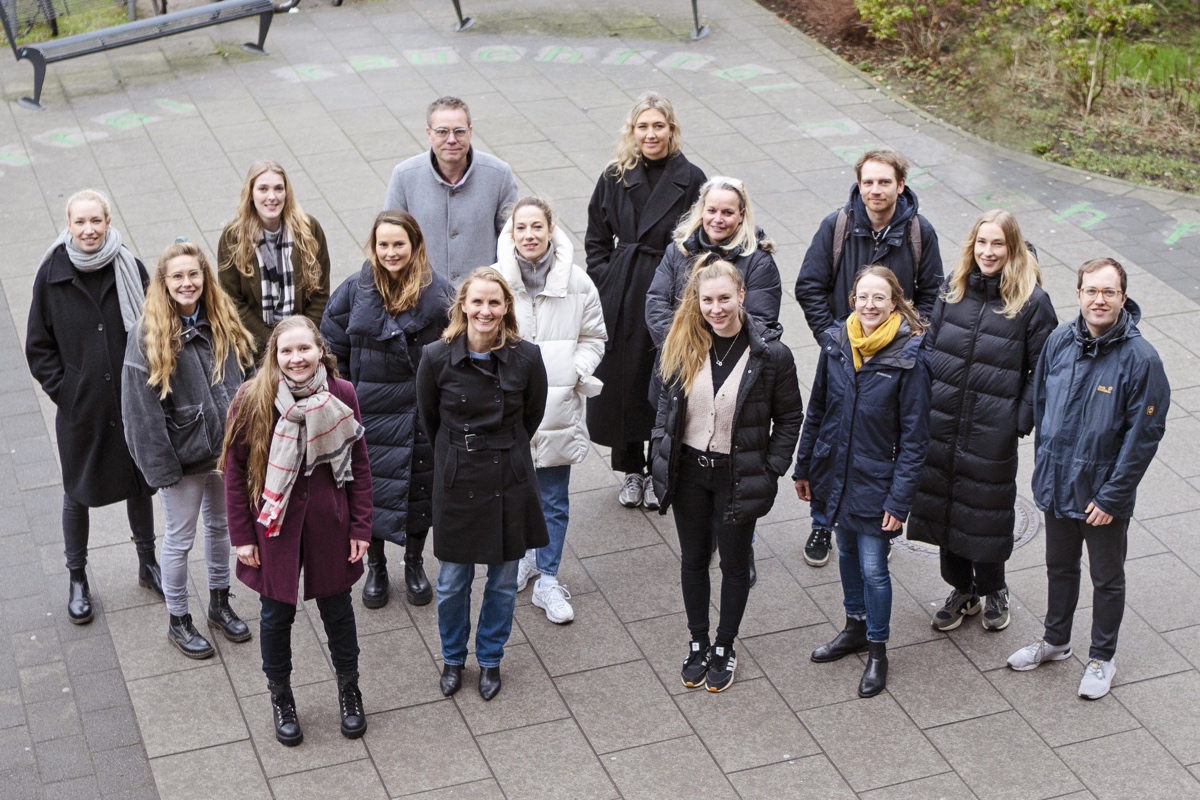- English
- Donate
Anyone may develop a mental disorder and need specialized help
Studies show that one in four people will develop a mental disorder requiring treatment at least once in their lifetime. This is often a very stressful time for the affected person as well as for their family members and friends.
To help individuals afflicted with psychological problems, our research group at the University Medical Center Hamburg-Eppendorf in Germany is developing easily accessible treatment options. These include both self-help interventions (manuals and online programs; see the menu items above for more information) and therapist-guided treatments such as metacognitive training for psychosis, depression, and obsessive-compulsive disorder (see menu items).

The effectiveness of many of the methods we have developed, such as metacognitive training, association splitting, and decoupling, has been confirmed in independent studies, and we are pleased that some of our interventions are included in international treatment guidelines. However, disseminating these interventions (going from bench to bedside) is challenging and expensive, and we rely on support from grants and donations.
Every donation helps!
Our group has neither administrative staff nor professional fundraisers. One hundred percent of every donation we receive goes into our research; our primary goal is to translate basic research results into concrete, evidence-based treatment programs within a short time so that our treatments become available to people as soon as possible.
All of our treatment programs are based on a solid scientific foundation. This requires validation through studies. The costs incurred by a study range from relatively small expenses such as the fees for photos and other creative work to the cost of hiring scientific staff to design the methods and treatment approaches and to conduct the studies. The backbone of our research is public funding, which we apply for from organizations such as the German Research Foundation (DFG) or from government agencies. However, these funds do not cover all costs. Once a new treatment has proven to be feasible and effective, we need to prepare manuals and workshops so that people can learn how to implement the procedures in their daily lives.
Examples of our work
In 2021, we launched the COGITO app, which addresses general topics such as self-esteem and sleep as well as more specific problem areas (e.g., obsessive-compulsive disorder). This app is continually being revised and expanded with new program packages (we are currently working on a program package on anxiety). COGITO supplements our metacognitive therapy programs, which we have been providing free of charge for a variety of disorders since about 2002.
Every year, we also develop at least one or two therapy methods that we then test for their effectiveness. As mentioned above, this is costly (both to evaluate the methods and then to implement and disseminate them). For example, we have recently created the online portals Lenio (for pain) and Restart (for problem gambling) as well as other self-help techniques (including habit replacement and decoupling to reduce hair pulling/trichotillomania, skin picking), which we continue to update based on the latest scientific findings.
If you are interested in learning more about what we do and how you can support us, please visit our research pages above or contact us directly (Steffen Moritz, moritz@uke.de; Lena Jelinek, l.jelinek@uke.de).
You can also make a donation through this donations portal (e.g., PayPal): www.betterplace.org.
We are grateful for every donation. Even small donations help. Of course, you will receive an official receipt from us for tax purposes.
We would like to thank our supporters for their contributions. The table below listing our supporters is continuously being expanded. Have you have made a contribution but do not see your name in the table below? If so, please send an email to Steffen Moritz (moritz@uke.de).
- Adler, S.
- Alexius Josef Krankenhaus
- aus Bielefeld (anonymous)
- aus Gerlingen (anonymous)
- aus Hannover (anonymous)
- aus Nonnweiler (anonymous)
- AWI Automatenwirtschaft
- Bachmann, E.-M.
- Bausch, K.
- Beckers, D.
- Bezirkskliniken Schwaben
- Bode, B.
- Bremen (anonymous)
- Bründel, K.-H.
- Danner, R.
- Diakonisches Werk Schweinfurt
- Dressel, M.
- Driessen, M.
- Ehrich, A.
- Eli Lilly Benelux
- Forensische Psychiatrie Haina
- France, I.
- Gaber, R.
- Ganter, R.
- Ganzer-Gueldenpfennige
- Gempp, M.
- Gmeinwieser, S.
- Gois, C.
- Griebel, O.
- Gut Org AG
- Helios Fachklinik Hildburg
- Henkel, U.
- Herfurth, C.
- Heser, K.
- Hodgkiss, K.
- Holub, K.
- ivp network
- Kaufmann, S.
- Kempf, M.
- Kleverbeck, V.
- Kopacz, S.
- Krämer, S.
- Krause, U.
- Kreiskliniken Gummersbach-Waldbrödl
- Landschaftsverband Rheinland (LVR)
- Lechmann, C.
- Lecker, R.
- Lippler, G.
- Long, U.
- Mossaheb, N.
- Munari, F.
- Oxleas NHS Jayne Corson
- Peters, D.
- Poppinga, Familie
- Psychiatrische Klinik Lüneburg
- Raluca Domita Oancea
- Reidinger, G.
- Reusch, N.
- Ribbe, S.
- Rivoir, S.
- Schaal, N.
- Schäfer, P.
- Schmidt, C.
- Schmit, M.
- Scholz, S.
- Schomberg, B.
- Schreiber, R.
- Steudter, J.
- Stoedtke, M.
- Strelau, S.
- Vahar-Martiar
- Vanin, N.
- Von Gress, A.
- Wahnschaffe, T.
- Weiss-Matulat, M.
- Willmann, S.
- Winn, S.
- Zeltner, H.
We would also like to express our gratitude to:
